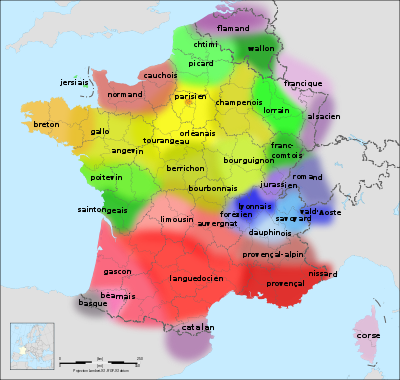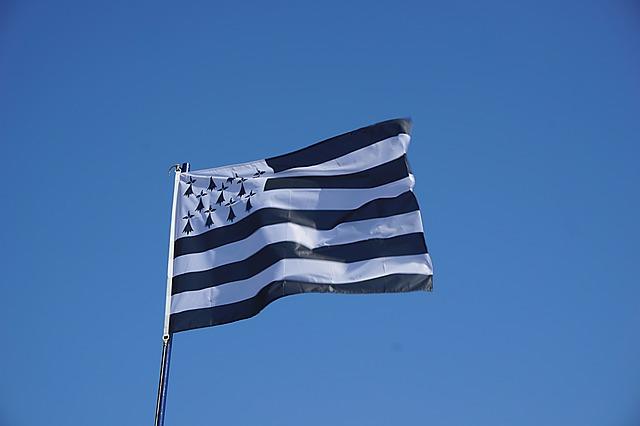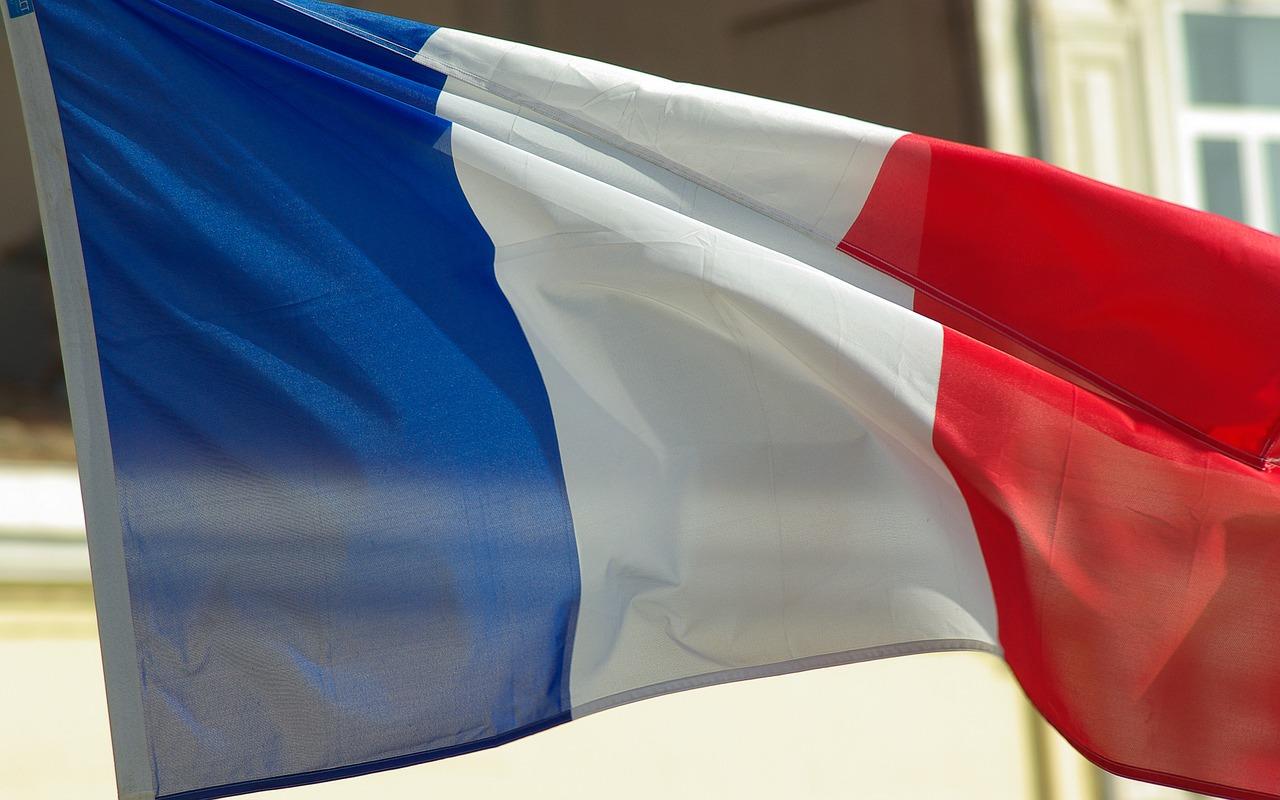Today, French is the official language of 29 countries and is spoken by three hundred million people. As one of the world’s most widely-studied languages, coming second only to English – but where did it come from?
In the English-speaking world, we see aspects of the French language every day, whether it’s in the etymology of our own vocabulary (such as affair and crayon) or when we directly borrow a French phrase that the English language is lacking (like cliché and vis-à-vis).
In fact, our own language would have sounded completely different if it were not for the Norman conquest of 1066 which brought the French language to England, where the vast majority of the population spoke Anglo-Saxon. Before this, French was a language reserved for the aristocracy on British soil as a language of prestige.
So, how has the French language changed since the days of William the Conqueror? And where did it originate from in the first place?
If you're interested in learning a second language, you will be intrigued by the French language. No doubt, many enjoy learning more about the history of the official language of France and the origin of the dialect. You could easily accomplish this by taking a French class online. It is one of the five languages descended from Latin, with the other four being Spanish, Portuguese, Italian, and Romanian.
French is an enjoyable and engaging language to learn. It is not unusual to hear the French language sound romantic; hence, it is usually described as a romance language. But that's not exactly the case. The term romance language directed towards French comes from a Latin term known as "romanica loqui," which implies speaking in a Roman fashion.
The French people are mainly located in Western Europe, where French cultural history and French language are identified with France territory. Understanding French requires a quick dive into the French background and how it has developed in modern times.
The French language has an incredibly rich and interesting history behind it – so, read on and learn all about its Latin roots, popularity in Europe, variations and what the French language looks like today!

How the Romans Influenced the the Old French Language
French is part of the family of romance languages, which means that it is originally derived from Latin – the language spoken by the Romans about 2000 years ago.
The Romans are famous for their tireless efforts to expand their empire, and one of the consequences of this was the spread of Latin as an adopted language.
When the Romans started conquering French soil (known then as Gaul) in around 1BC, the language spoken by the inhabitants wasn’t French – instead they spoke a variety of Celtic dialects which would have been similar to Welsh.
The Roman settlement in Gaul resulted in the mixing of cultures to produce what is now referred to as ‘Gallo-Roman’ culture.
Here is where you can get various french lessons in Saskatoon

However, when it came to the language spoken by the Gallo-Romans, the mixing process was not so successful, and the Gaulish dialects eventually disappeared as Latin took over.
By the time that Latin had been adopted as the common language in Gaul, it had developed independently of the Latin spoken in Rome, the centre of the Roman empire. So, the version of Latin which was spoken on French soil had diverged to the point where it was identifiable as a dialect of standard Latin.
This ‘new’ version of Latin is now referred to as ‘Vulgar Latin’ – not because it was rude, but because it was the language spoken by the ‘vulgus’, which means ‘common people’ in Latin.
Vulgar Latin developed into the Gallo-Romance languages in the Medieval period which included the Oïl languages (closest to modern French) as well as the Franco-Provençal language family.
Many of these languages still exist today as dialects. Among the most widely spoken are Walloon, Picard, Occitan and Berrichon, but sadly, as the number of native speakers of these dialects plummets, the likelihood of extinction is on the rise.
So, how did the French language overcome every other dialect to become the country’s official language?
What Impact Did the Romans Have on the French Language?
The French people, mainly the native speakers from central or Northern France, are the Gauls, Franks, Visigoths, and Romans. After the gradual decline of the Roman Empire, the Burgundians settled in Gaul from the east of Rhine.
After Caesar conquered Gaul, now known as France, it was systematically romanized by the Romans. Celtic culture slowly disintegrated across Europe and merged with the Roman civilization. They slowly worshipped even their deities under Roman names, and various cities and towns which were built were given Roman identities. The conjugation of the Roman language of Latin and regional Celtic tongues created the French vocabulary.
Not long after the Romans defeated the Celts, the Celts started experiencing difficulty setting up a new government, collecting taxes, and managing their new armies. Carrying out this task was foreign to them, which made them further lose their dominance of the surrounding territories. The Romans ruled over France for about 500 years.
All the things we know today about the French were greatly influenced by the actions of the Roman Empire after taking over Gaul. The French language fully descended from the Latin spoken by the Romans, which was said to be quite vulgar at the time. It principally evolved from Gallo-Romance, which was the Latin spoken in Gaul after it was conquered.
The Romans created the French language from their language and the language of the Celts, but they founded numerous cities and towns that remain in France till today. This includes cities like Lyon, Vienne, Orange, Frejus, Autun, Narbonne, and Nimble.
Languages Spoken in France: Dialects and français régionale
It might surprise you to know that almost half of the population living in Southern France, Alsace and Brittany did not speak French as their mother tongue at the beginning of the 20th century – instead, they spoke regional languages and dialects.
The outcome of the introduction of Latin by the Romans was a patchwork of Gallo-Romance dialects which differed from town to town.
You can get various french lessons in Ottawa

Despite the differences in these dialects, speakers from different towns and villages would have been able to communicate effectively with one another as long as they didn’t travel too far afield.
Linguists have been able to group these dialects according to evidence given by their speakers as well as the languages themselves to identify the geographical frontiers of each language.
What Are 5 Major Languages Spoken in France and Why Are They Taught in French Class?
France has primarily been a combination of local customs and regional varieties. However, most French people still speak the French language as their primary language. Some languages like Breton, Occitan, Alsatian, Corsican, and some others remain spoken in some regions in France. Arabic is also spoken in France and is arguably the most minority language spoken in French territory.
According to an educational survey conducted in 2007 by the European Union, the French language is the mother tongue of about 87.2% of the total population in France. Arabic follows it with about 3.6%, Portuguese with about 1.5%, Italian with 1%, and Spanish with about 1.2% of the population. Then people who speak other languages make up the remaining 5.2% of the total population.
These five languages above are the major languages spoken in France. The best way to learn French is to take French lessons anywhere you can. French learners can take a French GCSE exam and see if they have a good level in French. For those residing in Canada, it comes with little or no difficulty. Firstly, Canada is a French-speaking country with half the regions in Canada speaking the native French language.
If you are in a province where French is spoken, you have to apply for a French class near you in order to surpass your A level. Searching for how to learn French will certainly come easier with your location. They're local institutions, organizations, and other societies where you could take a French class and start gaining progress with the language.
For residents in the English-speaking provinces, it is still relatively easy to come across French lessons. Although French is spoken, primarily in the French provinces, the English provinces aren't devoid of French communities. Hence, you could still learn the language through first-hand experience; it would only take some difficulty to find.
Irrespective of what province you are located in, taking a French class online is another way to learn French. It is one of the best ways to learn French because of its convenience and flexibility. Due to technology, you can take a French class online from anywhere in the world.
Superprof is an excellent platform where you can meet various tutors who can take you through learning French, it's a perfect resource to help you succeed in your GCSE exam. We have a host of tutors from diverse backgrounds and qualifications that can aid your learning journey. These tutors are located in different countries across the world and can be contacted on the Superprof website.
All you need to do is visit the Superprof website, select your country, look through the various tutor profiles available, and choose the one that best suits your learning needs. The first hour of the lesson is free, and you can easily learn French quickly.
Here is a map of the traditional French dialects spoken in each region:

Unfortunately, these languages have been disappearing since the population became more mobile and started having to adjust their language to help others understand them.
This process is known as leveling, where particularities of dialects are lost in favour of common features with other languages. Leveling in France has led to the birth of français regional or regional French.
Regional French is any version of standard French which has been altered according to a regional dialect which it has replaced.
One example of this can be seen in the grammar of the Ch’ti dialect spoken in Nord-Pas-de-Calais. Where speakers of standard French would say “acheter du pain pour que je mange”, Ch’ti would say “acater du pain pou mi manger” (where ‘pou mi manger’ means ‘pour moi manger’).
Even though français régionale can be understood by most French speakers, its use is diminishing.
The death of the dialect and of regional French can be attributed to many factors including urbanisation, advancements in technology and the French education system.
If you're learning French in the UK education system, have a look at our tips on GCSE French revision and studying A Level French.
Search for online French courses here.
How did the French language we know today come to rule over not just France, but 28 other countries?
The Spread of French Languages
The reign of regional languages and dialects in France lasted for centuries – but how did French replace them?
We know that one of the main reasons for the victory of French over traditional dialects was the French education system.
Education in France has been compulsory and universal since the early 20th century and has promoted the widespread use of French by educating children in the prestigious language of the capital: français normé or standard French.
This meant that children who were brought up speaking traditional dialects were starting to use standard French in social situations more often than their native dialects.
Get to find different French classes Montreal here.

In addition, although there have been efforts made by the French government to preserve some of these regional dialects, funding and resources are only available for certain varieties and in areas where there is a demand for teaching.
The urbanisation of France has also played a major role in the spread of French. As more and more people have relocated to urban areas, they have had to almost abandon their dialects altogether in order to be understood by others.
Aside from the spread of the standard language within France itself, the French language has also spread to other countries around the world.
But how did it get there?
Like Britain, France has a colonial past.
This is the reason why French is the official language of so many African countries, where the language is used for administrative purposes as well as being spoken by the population.
Canada is another major area where French is regularly spoken, the place to obtain some French tips if you're thinking of learning. The French language was brought to North America by French settlers in the early 17th century.
Interestingly, the varieties of French spoken in many former French colonies are evolving independently of the français normé of France – just like Vulgar Latin diverged from traditional Latin in antiquity.
So, what does this mean for the French language today?
If you were taking French lessons London or elsewhere in the UK with a Superprof tutor, you would know!
Find French classes Toronto here on Superprof.

How Did the French Language Spread Across the World
French is spoken by about 70 million people in 46 different territories. Though derived from Latin through the Romans, it became the dominant language in the 17th century in Europe, and it has spread across the world ever since. It moved towards the Caribbean and through European settlers in Canada. Till today, it remains a primary language in most provinces across Canada.
The French language also spread across Africa in the 19th century by the colonization of different territories like Togo, Ivory Coast, Benin, and other countries. Till today, French is still spoken mainly in those countries and is used as an official language. Currently, France works through an organization of French-speaking nations to improve the significance of the language across the globe.
The best way to learn French involves taking French courses online or at known French institutions where you can quickly grasp the basics of the language and take different classes on various aspects of French. You can take a French class online or go to nearby communities or institutions around your region which provide French lessons.
For taking French classes online, Superprof offers one of the best tutoring services with a range of tutors experienced in various languages that can easily help you learn. All you have to do is visit Superprof and choose a French tutor near me.
Are There Differences Between the French of Old and Modern French Language?
There are significant differences between French of the old and modern French language; when looking for the who, what, where, when, why of French, you should be interested in the disparities between the contemporary and older versions of the language.
Start learning French here on Superprof.

Older French is more difficult to understand, and the pronunciation is quite different. Back then, there were little or no silent letters, and all alphabets were pronounced. Secondly, old French exists in two cases which means you need to be aware of a regime way to say it and a normative way to say it. Though there are lots of differences, they still both have the same roots.
What Should You Know About French
Most people choose French because it is widely spoken across the world. Some others enjoy it because of its rich history, cultural heritage, vast literature, and lifestyle patterns of the French-speaking world. It is already touted as the language of romance; most people even learn to find love, as unlikely as that may sound.
According to Forbes, French is predicted to be one of the most spoken languages of the future, and statistically, French is the second useful language for business. French is also one of the top ten majors most likely to guarantee employment and improved earnings.
A French major is also one of the most lucrative globally. It is directly related to industries predicted to grow in the next decade and evolve into new business patterns. Now, more than ever, French speakers are in high demand across Canada and many other countries globally.
In areas like agriculture, health, business, education, community, and youth development, speaking French is sometimes considered a rare skill; hence most French speakers are favored in those sectors. In the United States, one of the most populous nations globally, French is the third most spoken language.
Taking a French class online is relatively easy in this modern digital world. There are many platforms on the internet that teach the French language's basic structure, tense pronunciation, and intonation. These platforms offer remote or direct tutoring services, which can happen at a neutral location or even in your living room in Canada.
If you still happen to be searching for French tutors in Canada after reading this, you should visit the Superprof website; there is an array of professionals that will cater to your language needs.
What the French Language Looks Like Now
Many of the new varieties of French which are spoken overseas have been standardised, which means that they are recognised as languages in their own right, with a specific spelling and grammar system – think of the difference between French in France and Canadian French as the difference between US English and British English.
The same way that Brits walk on a pavement whereas Americans take the sidewalk, French people take their voiture (meaning car) for a spin, while Canadians will take their char.
France’s history of colonialism has also led to changes the language spoken on its own soil.
The school French you learn doesn't necessarily reflect the French that is spoken by natives.
Because of France’s efforts to colonise the area of North Africa known as Maghreb, which consists primarily of Algeria, Morocco and Tunisia, some features of Arabic have entered the French language as North African people have begun to settle in France.
The Arabic words which have been adopted by French speakers are mainly used in familiar contexts as slang and include words such as flouze (meaning money) and hachmah (which means shame).
Click here to see a list of Arabic alternatives to French in use.
From Latin to Arabic, it’s not difficult to see that there are many linguistic consequences to people mixing between cultures – so, where is the French language headed?
The Future of the French Language
As one of the fastest-growing languages is in the world, French is not under any threat.
Some French language purists are concerned about the further evolution of the French language, worrying that It will become ‘polluted’ by foreign vocabulary and will therefore become ‘less French’.
As technology advances and education and media in other languages become more accessible, the adoption of foreign words becomes more likely.
Sadly, however, the popularity of the French language and the increased need for speakers of international or ‘useful’ languages mean that the future looks bleak for the traditional French dialects.
To learn about taking French lessons, click here.
Summarize with AI:
















